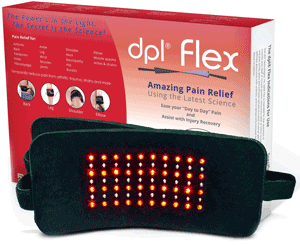I had an email the other day from a reader who was essentially promoting a product made from grapefruits, which reminded me of a recent experience.
I was on a trip for work, and stayed in one of the worst hotels my company has ever put me up in.
Complaints will be made.
This miserable hovel (and I shall not name names here) had holes in the wall, damp in the corner, no air con and a window which didn’t open despite the temperature reaching 80 degrees during the night, and three breakfast options.
You read that right folks – who has ever stayed in a hotel which offered you a choice (if you can call it a choice) of three things for breakfast?!
I could have cereal and milk – not good for my ketogenic diet or acne-prone skin.
I could instead have toast with butter – the bowls which should probably have held the jam and marmalade were conspicuously empty.
The third option? Grapefruit. With or without sugar.
Fantastic.
Now, I don’t normally eat breakfast anyway, because I find my skin is much better while practising intermittent fasting.
There are a whole host of benefits to intermittent fasting which you can read about here.
But on business trips or holidays, where I’m out of my normal routine and lunch may or may not be available, I do make an exception and at least eat something for breakfast.
On this occasion, and faced with the three poorly-laid-out choices on offer, I opted for grapefruit. I’m not sure why it took my fancy on this particular day, but it did. Especially as, believe it or not, I’ve somehow made it nearly 30 years on this earth without actually eating a grapefruit.
It tastes surprisingly bitter yet refreshing, didn’t cause me to break out at all (some fruit, like bananas and grapes, will give me acne), and while I was eating it I got an idea to research it for acne, because it’s often touted as a “superfood” and has been linked to improvements in rosacea – a skin condition not entirely unrelated to acne.
So is grapefruit good, bad or indifferent for acne?
A brief warning before we start: one of the only things I recall from studying pharmacology at college is that grapefruit can interact badly with certain prescription medications – crucially for us, including Accutane (isotretinoin) and several antibiotics which may commonly be prescribed for acne, like erythromycin. Always read the information leaflet with any medication you’re taking, and if you’re interested in more here’s a good Wikipedia page.
Good: Grapefruit contains a number of acne-fighting vitamins and other compounds. Vitamin A, several of the B vitamins, a lot of vitamin C, as well as a plant-derived flavonol called quercetin.
Quercetin is thought to decrease inflammation and reduce the histamine response to allergens, both of which would be good for acne… however, no scientific study has yet demonstrated a clear cause-and-effect benefit from quercetin, so the jury’s still out.
Although the fleshy part of the fruit is the tasty bit, it’s the grapefruit seed which really contains the most beneficial compounds.
Grapefruit Seed Extract (GSE) contains powerful antioxidants (good for reducing inflammation) as well as antimicrobials, which have been proven effective against a huge range of bacteria and yeast. Interestingly, this was discovered when a doctor in Florida noted that grapefruit scraps in his compost pile didn’t break down.
GSE can even (apparently) be used topically, by adding a few drops to wet hands, rubbing onto your skin and then rinsing off after a couple of minutes – but I’ve never tried this and I’ve found no evidence that it will really work.
Bad: All the above benefits notwithstanding, grapefruit is a citrus fruit and citrus fruits all contain citric acid. This acid is a common allergen, and any allergenic substance increases histamine and puts your immune system on red alert.
Having a constantly-active immune system is not as good as it sounds. It tends to cause your body to “overreact”, turning what would otherwise be a simple blocked pore into an infected, red, angry looking pimple or cyst.
If you don’t tolerate citrus fruit well, grapefruit juice will not do your acne any favors.
Grapefruit Seed Extract is a potentially safer way to get the benefits from grapefruit – you’d need to eat about two pounds of the fruit to get the same amount of antioxidants and antimicrobials – but it’s hardly the easiest, cheapest or best way to get your vitamins.
What about grapefruit juice?
Unless you’ve squeezed it yourself from an actual fresh grapefruit, I’d stay away from grapefruit juice.
Most of the fruit juices available on your local supermarket shelves are packed full of sugar – often it’s the number two ingredient, after water – and sugar will lead to an insulin surge, which is bad news for acne.
As with just about any food, fresh is best.
——————–
Grapefruit verdict: Probably not good…
Eating a ketogenic diet and not wasting time on breakfast remains my favourite way to eat for acne, and while chucking in the occasional grapefruit when you feel like a fruity morning meal (or when you’re stuck in a dreary hotel) might not do your acne any harm, it could lead to breakouts and the benefits can be more easily and cheaply found elsewhere.


